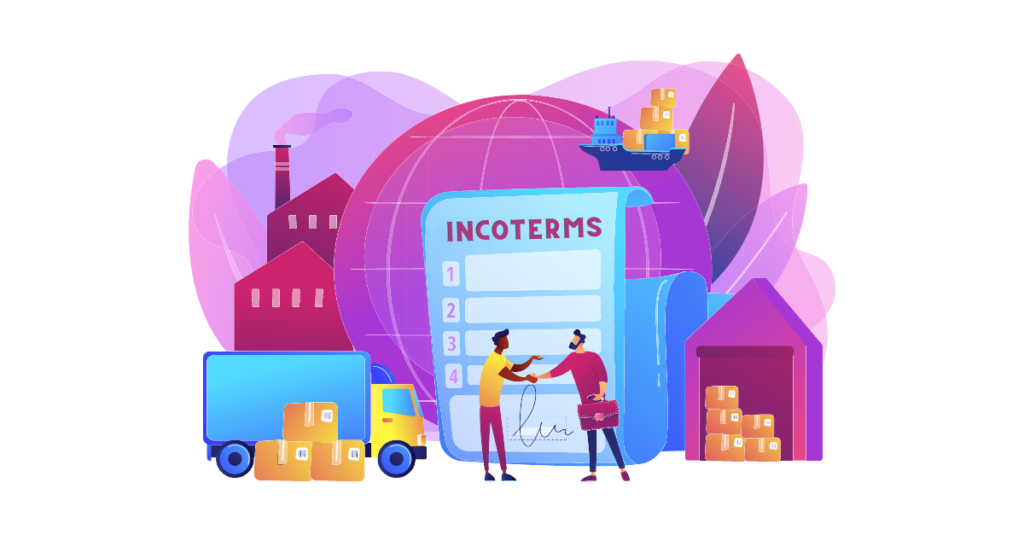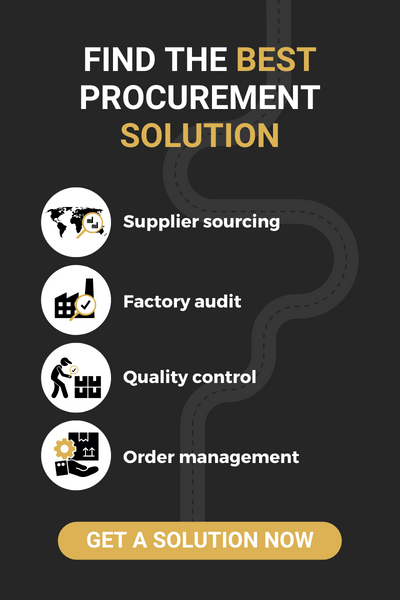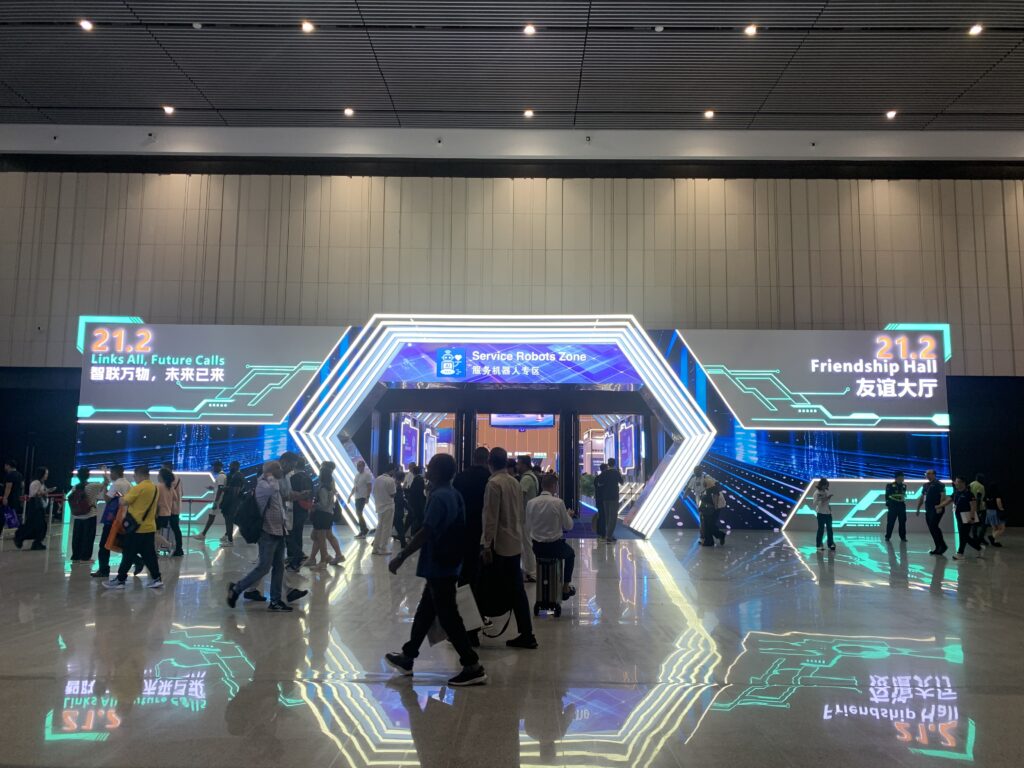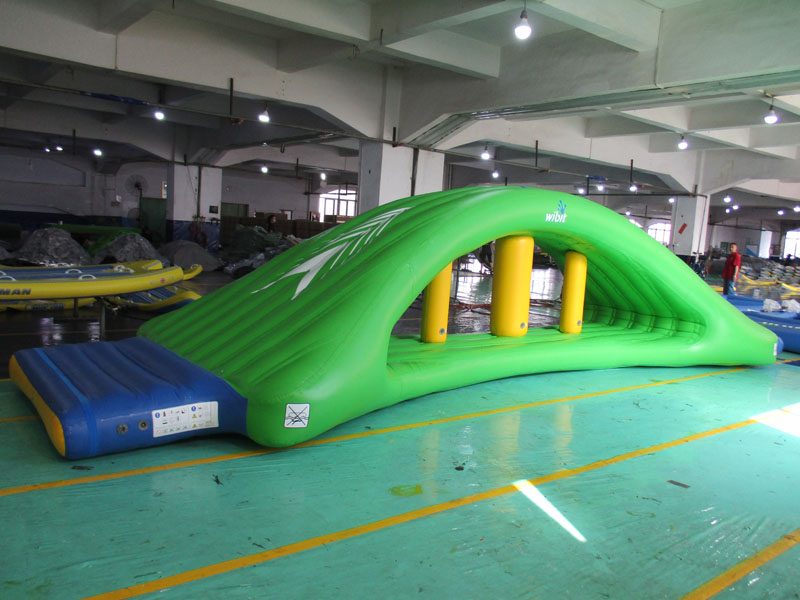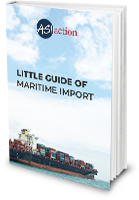In the current context of global trade, mastering the Incoterms 2020 is more important than ever for import-export professionals. That’s why we have developed this comprehensive and professional guide, which will accompany you in understanding and applying these essential rules of international trade.
Whether you are a novice or experienced in this field, dive into this exhaustive guide now to discover or deepen your knowledge of the Incoterms 2020, a true key to success for your international trade operations.
Introduction to Incoterms 2020
Transactions between companies from different countries involve specific rules and standards to facilitate exchanges and ensure the safety of stakeholders. Incoterms, or International Commercial Terms, are a set of globally recognized rules for the sale of goods. They were created by the International Chamber of Commerce (ICC) and are regularly updated. In this guide, we present the Incoterms 2020 and explain how to master them to succeed in international trade.
An Incoterm is a standardized term that defines the responsibilities and obligations of buyers and sellers in international commercial transactions. Incoterms help parties clarify costs, risks, and responsibilities related to the shipment of goods, avoiding misunderstandings and potential disputes.
Incoterms play a key role in international trade by defining the responsibilities of the parties for transportation, insurance, documentation, and customs duties, among other aspects. They help minimize problems and costs related to disputes and misunderstandings. Understanding and correctly applying Incoterms is therefore essential for companies involved in international exchanges.
The 11 Incoterms: A clear classification
The Incoterms 2020 are divided into two main categories, depending on the mode of transport used: rules applicable to all modes of transport (E, F, C, and D) and rules specific to maritime and inland waterway transport (FAS, FOB, CFR, and CIF).
In this article, we have chosen to give you an order of the Incoterms, from the least to the most advantageous for the importer, and therefore from the most to the least advantageous for the exporter with practical case examples.
EXW (Ex Works)

The Incoterm EXW means that the seller makes the goods available to the buyer at their own premises (factory, warehouse, etc.). The buyer assumes responsibility and costs for transporting the goods from the seller’s premises to their final destination. This is the least advantageous Incoterm for the importer, as they must manage all aspects of transportation.
Buyer obligations for the Incoterm EXW:
- Arrange and pay for transport of the goods from the seller’s factory.
- Assume all risks and costs after the goods have been made available.
Case study: Importing an Industrial Machine in EXW Incoterm
Context: You are an American company specialized in the manufacture of plastic products and have decided to import an industrial machine from China. After negotiating with the Chinese supplier, you have agreed to use the EXW Incoterm for this transaction.
As an importer under EXW, here are the main steps you will need to follow:
- Transportation arrangement: You are responsible for arranging and paying for the transportation of the machine from the Chinese supplier’s factory to your production site in the US. You will need to select a reliable carrier and freight forwarder to ensure the machine arrives in good condition.
- Export customs formalities: You will also need to ensure that the Chinese supplier has prepared all necessary documents for the export of the machine, such as the commercial invoice, certificate of origin, etc. As an importer, you are responsible for completing export customs formalities and paying duties and taxes.
- Transportation insurance: Since you assume all risks related to the transportation of the machine from the supplier’s factory, it is essential to obtain transportation insurance to cover potential damages or losses during transportation.
- Import customs formalities: Upon arrival of the machine in the US, you will need to complete import customs formalities and pay duties and taxes. You will also need to ensure that the machine complies with the regulations and standards in effect in the United States.
- Machine reception and installation: Once customs formalities are completed, you can arrange for the unloading and installation of the machine in your factory.
In conclusion, by choosing the EXW Incoterm, you must be prepared to assume all responsibilities and costs related to transportation, customs formalities, and insurance. It is therefore crucial to plan well and pay attention to details to ensure a successful import of the industrial machine.
FCA (Free Carrier)

With the Incoterm FCA, the seller is responsible for delivering the goods to the carriers designated by the buyer. The seller assumes the costs and risks up to the delivery, while the buyer takes charge of the main transport and associated costs.
Buyer’s obligations for the Incoterm FCA:
- Arrange and pay for the main transport of the goods.
- Assume all risks and costs once the goods have been delivered to the designated carrier.
Case Study: Importation of Solar Panels under FCA Incoterm
Context: You are a Spanish company specialized in distributing solar panels and you have decided to import solar panels from China. After negotiating with the Chinese manufacturer, you have agreed to use the FCA Incoterm for this transaction.
- Main transport organization: You are responsible for organizing and paying for the transport of the solar panels from the agreed location in China (for example, the manufacturer’s warehouse or a transport terminal) to your warehouse in Spain. Therefore, you will need to select a reliable carrier and freight forwarder to ensure the proper delivery of the solar panels.
- Export customs formalities: The Chinese manufacturer will be responsible for preparing the goods and handing them over to your carrier at the agreed location. They are also responsible for completing export customs formalities and paying any applicable duties and taxes in China.
- Transport insurance: As you assume all risks related to the transport of the solar panels from the moment they are handed over to your carrier in China, it is essential to obtain transport insurance to cover any possible damage or loss during transportation.
- Import customs formalities: Upon the arrival of the solar panels in Spain, you will need to complete import customs formalities and pay any applicable duties and taxes. You will also need to ensure that the solar panels comply with the regulations and standards in force in Spain.
- Receipt and storage of solar panels: Once the customs formalities are completed, you can organize the unloading and storage of the solar panels in your warehouse.
In conclusion, by choosing the FCA Incoterm, you must be prepared to assume the responsibilities and costs related to the main transport, insurance, and import customs formalities. It is therefore crucial to plan carefully and pay attention to details to ensure a successful importation of solar panels.
FAS (Free Alongside Ship)

The Incoterm FAS implies that the seller delivers the goods alongside the buyer’s ship at the specified port of shipment. The buyer assumes all costs and risks from this moment, including loading onto the vessel, transportation, and insurance.
Buyer’s obligations for the Incoterm FAS:
- Arrange and pay for the main carriage of the goods from the moment they are placed alongside the vessel at the port of shipment.
- Assume all risks and costs once the goods are placed alongside the vessel.
FOB (Free On Board)

In the case of the Incoterm FOB, the seller is responsible for loading the goods onto the buyer’s vessel at the port of shipment. Once the goods are on board, the buyer assumes all costs and risks associated with transportation and insurance.
Buyer’s obligations for the Incoterm FOB:
- Arrange and pay for the main carriage of the goods from the moment they are on board the vessel at the port of shipment.
- Assume all risks from the moment the goods are on board the vessel.
Case study: Furniture import in FOB
Context: You are an Australian company specialized in selling furniture and you have decided to import designer furniture from China. After negotiating with the Chinese manufacturer, you have agreed to use the FOB Incoterm for this transaction.
- Organization of maritime transport: You are responsible for organizing and paying for the maritime transport of the furniture from the port of loading in China to the destination port in Australia. Therefore, you will need to select a reliable shipping company and freight forwarder to ensure the proper delivery of the furniture.
- Export customs formalities: The Chinese manufacturer will be responsible for preparing the goods and loading them onto the ship at the port of loading in China. They are also responsible for completing the export customs formalities and paying any applicable duties and taxes in China.
- Transport insurance: Since you assume all risks related to the transport of the furniture from the moment they are loaded onto the ship in China, it is essential to purchase transport insurance to cover any potential damages or losses that may occur during transport.
- Import customs formalities: Upon arrival of the furniture at the destination port in Australia, you will need to complete the import customs formalities and pay any applicable duties and taxes. You will also need to ensure that the furniture complies with the regulations and standards in force in Australia.
- Transport and delivery of furniture: Once the customs formalities are completed, you can arrange for the transport of the furniture from the destination port to your warehouse or store. It is important to allow sufficient time for this stage in order to minimize disruptions to your business.
In conclusion, by choosing the FOB Incoterm, you must be prepared to assume the responsibilities and costs related to maritime transport, insurance, and import customs formalities. Therefore, it is crucial to plan carefully and pay attention to details to ensure a successful furniture import.
CFR (Cost and Freight)

With the Incoterm CFR, the seller assumes the costs of transport and freight charges up to the destination port. However, the risk of loss or damage is transferred to the buyer once the goods are loaded onto the ship.
Obligations of the buyer for the Incoterm CFR:
- Arrange and pay for transportation from the destination port, including unloading the goods.
- Assume all risks from the moment the goods are loaded onto the ship at the port of shipment.
CIF (Cost, Insurance, and Freight)

The Incoterm CIF is similar to CFR, but the seller must also purchase insurance to cover the risk of loss or damage during the maritime transport. The risk is transferred to the buyer as soon as the goods are loaded onto the vessel.
Buyer’s obligations for the Incoterm CIF:
- Arrange and pay for transport from the port of destination, including unloading of the goods.
- Assume all risks from the moment the goods are loaded onto the vessel at the port of shipment.
Case study: Importing electronic equipment under CIF
Context: You are a Canadian company specialized in selling electronic equipment, and you have decided to import photocopiers from China. After negotiating with the Chinese manufacturer, you have agreed to use the CIF Incoterm for this transaction.
- Export customs formalities: The Chinese manufacturer will be responsible for preparing the goods and loading them onto the ship at the port of departure in China. They are also responsible for fulfilling the export customs formalities and paying any applicable duties and taxes in China.
- Transportation and insurance organization: The Chinese manufacturer is responsible for organizing and paying for the transportation of the photocopiers by sea to the destination port in Canada. They must also take out transport insurance to cover any possible damage or loss occurring during transportation.
- Import customs formalities: Upon arrival of the photocopiers at the destination port in Canada, you will have to complete the import customs formalities and pay any applicable duties and taxes. You will also need to ensure that the photocopiers comply with the regulations and standards in force in Canada.
- Transportation and delivery of the photocopiers: Once the customs formalities are completed, you can organize the transportation of the photocopiers from the destination port to your warehouse or store. As an importer under CIF, you are responsible for organizing and paying for the post-delivery transportation from the destination port.
In conclusion, by choosing the CIF Incoterm, you must be prepared to assume the responsibilities and costs related to import customs formalities and transportation from the destination port. The Chinese manufacturer is responsible for organizing and paying for the sea transportation as well as the insurance.
CPT (Carriage Paid To)

The Incoterm CPT means that the seller pays for the transportation of the goods to an agreed destination. However, the risk of loss or damage is transferred to the buyer as soon as the goods are delivered to the first carrier.
Buyer’s obligations for Incoterm CPT:
- Arrange and pay for the transportation from the agreed destination, including unloading of the goods.
- Assume all risks from the moment the goods are delivered to the carrier at the agreed place of shipment.
Cas study: Importation of electric bicycles under CPT Incoterm
Context: You are an Irish company specialized in the sale of electric bicycles and you have decided to import electric bicycles from China. After negotiating with the Chinese manufacturer, you have agreed to use the CPT Incoterm for this transaction.
- Export customs formalities: The Chinese manufacturer will prepare the goods and hand them over to a carrier in China. They are also responsible for completing export customs formalities and paying any applicable duties and taxes in China.
- Main transport organization: The Chinese manufacturer is responsible for organizing and paying for the main transport of the electric bicycles to the agreed destination in Ireland (e.g. a warehouse or transportation terminal).
- Transport insurance: As an importer under CPT, you assume the risks associated with the transport of electric bicycles as soon as they are handed over to the carrier in China. Therefore, it is essential to take out transport insurance to cover any potential damage or loss during transport.
- Import customs formalities: Upon arrival of the electric bicycles at the agreed destination in Ireland, you will need to complete import customs formalities and pay any applicable duties and taxes. You will also need to ensure that the electric bicycles comply with the regulations and standards in force in Ireland.
- Receipt and storage of electric bicycles: Once the customs formalities are completed, you can arrange for the unloading and storage of electric bicycles in your warehouse.
CIP (Cost and Insurance Paid To)

With the CIP Incoterm, the seller assumes the same responsibilities as in the CPT, but must also take out insurance to cover the risk of loss or damage during transport. The buyer becomes responsible for the goods once they are handed over to the first carrier.
Buyer’s obligations for the CIP Incoterm:
- Organize and pay for transport from the agreed destination, including unloading the goods.
- Assume all risks from the moment the goods are handed over to the carrier at the agreed place of shipment.
DAP (Delivered At Place)

In the case of the DAP Incoterm, the seller is responsible for all costs and risks associated with delivering the goods to an agreed-upon location, except for customs duties. The buyer is responsible for customs clearance and payment of duties and taxes.
Buyer’s obligations for the DAP Incoterm:
- Pay import duties and taxes.
- Arrange and pay for the unloading of goods at the agreed-upon destination.
- Assume all risks and costs once the goods are made available at the agreed-upon place, ready for unloading.
Case study: Importing Coffee Machines under DAP
Context: You are an Italian company specialized in the sale of coffee machines and you have decided to import automatic coffee machines from China. After negotiating with the Chinese manufacturer, you have agreed to use the Incoterm DAP for this transaction.
- Export Customs Formalities: The Chinese manufacturer will be responsible for preparing the goods and delivering them to a carrier in China. They are also responsible for completing the export customs formalities and paying any applicable duties and taxes in China.
- Transport Organization: The Chinese manufacturer is responsible for organizing and paying for the transportation of the coffee machines to the agreed destination in Italy (e.g. your warehouse or store). They must also obtain transport insurance to cover any potential damages or losses during transit.
- Import Customs Formalities: Upon arrival of the coffee machines at the destination in Italy, you will be responsible for completing the import customs formalities and paying any applicable duties and taxes. You must also ensure that the coffee machines comply with the regulations and standards in force in Italy.
- Receipt and Storage of Coffee Machines: Once the customs formalities are completed, you can receive the automatic coffee machines and store them in your warehouse or store.
DPU (Delivered At Place Unloaded)

DPU is similar to DAP, but the seller is also responsible for unloading the goods at the agreed destination. The buyer still has to take care of customs clearance and payment of duties and taxes.
Buyer’s obligations for Incoterm DPU:
- Assume all risks and costs from the moment the goods are unloaded at the agreed destination.
- Pay import duties and taxes.
DDP (Delivered Duty Paid)

With the DDP Incoterm, the seller assumes responsibility for all costs and risks associated with delivering the goods, including payment of import duties and taxes.
This is the most advantageous Incoterm for the buyer as they only have to receive the goods at the agreed destination.
Buyer obligations for DDP Incoterm:
- Assume all risks and costs from the moment the goods are made available for unloading at the agreed destination.
- Organize and pay for unloading the goods at the agreed destination.
Case Study: Import of industrial parts in DDP
Context: You are a UK industrial company and you have decided to import stainless steel industrial parts from China for your production chain. After negotiating with the Chinese supplier, you have agreed to use the Incoterm DDP for this transaction.
- Export customs formalities: The Chinese supplier will prepare the goods and hand them over to a carrier in China. The supplier is also responsible for the completion of export customs formalities and payment of any duties and taxes in China.
- Transportation arrangements: The Chinese supplier is responsible for organizing and paying for the transportation of the industrial parts to the agreed destination in UK (for example, your warehouse or factory). The supplier must also purchase transportation insurance to cover any damages or losses during transport.
- Import customs formalities: Upon arrival of the industrial parts at the agreed destination in UK, the Chinese supplier will take care of the import customs formalities and payment of any customs duties and taxes. You do not have to deal with these procedures.
- Reception and storage of industrial parts: Once the customs formalities are completed, you can unload the stainless steel industrial parts and store them in your warehouse or factory.
Summary of buyer's costs
Asiaction has created a table of costs for the buyer for each Incoterm. In gold, the costs you must pay as a buyer. In gray, the costs covered by the seller.
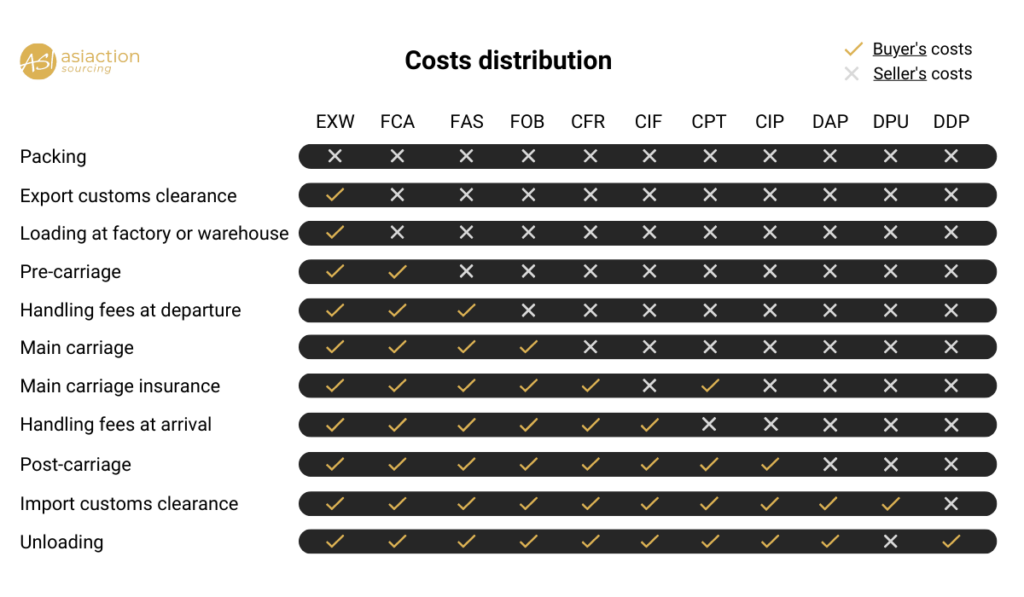
Choosing the right Incoterms: factors to consider
To choose the right Incoterm, it is important to consider several factors, such as the nature of the goods, the mode of transport, and costs. It is also crucial to determine the risks that each party is willing to assume and ensure that responsibilities are clearly defined in the contract.
- The nature of the goods: The choice of Incoterm will depend on the nature of the goods being exchanged. For example, if the goods are perishable or require specialized transport, it may be wise to opt for an Incoterm that involves faster delivery or specialized transport.
- Transport conditions: Transport conditions can also influence the choice of Incoterm. For example, if transport involves transshipment or a change in the mode of transport, it may be better to choose an Incoterm that takes these aspects into account.
- The distance between the two countries: The distance between the two countries can also impact the choice of Incoterm. Indeed, the greater the distance, the higher the risk of loss or damage, which may require choosing an Incoterm that takes these risks into account.
- The relationship between the parties: Finally, the relationship between the parties can also influence the choice of Incoterm. For example, if the parties have a trusting and long-term relationship, they may be more comfortable with an Incoterm that involves more responsibilities and obligations for one of the parties.
In summary, choosing the right Incoterm is a crucial element for any international trade transaction. It is important to consider several factors to make the most suitable choice for each situation. Stakeholders must also ensure they understand the implications of each Incoterm to avoid misunderstandings or disagreements during the transaction.
Major changes in Incoterms 2020
The Incoterms 2020 introduced several major changes compared to their previous version, the Incoterms 2010. These changes aim to better meet the needs of businesses involved in international trade and clarify the responsibilities and obligations of each party during the transaction.
Comparison with Incoterms 2020
The Incoterms 2020 retained the 11 existing terms in the Incoterms 2010, but made several significant modifications:
- Incoterms 2020 introduced a new rule, DPU (Delivered at Place Unloaded), which replaces the DAT (Delivered at Terminal) rule from Incoterms 2010. The DPU rule allows for greater flexibility in terms of the delivery location, as it is not limited to a specific transport terminal.
- Incoterms 2020 provided clarifications on the use of certain terms, including FCA (Free Carrier) and CIF (Cost, Insurance and Freight), to clarify the obligations of each party.
Incoterms 2020 placed an emphasis on the security and safety of goods during transport, adding specific clauses for loading, transport, and delivery of goods.
Impact on International Transactions
The changes made by Incoterms 2020 will impact international transactions by clarifying the responsibilities and obligations of each party. This should help reduce misunderstandings and disagreements during the transaction.
The changes made to the FCA and CIF terms should also help avoid disputes by clarifying the obligations of each party regarding transport and insurance.
The new DPU rule should also offer greater flexibility to parties in terms of delivery location, which can be particularly useful for transactions involving bulky or heavy goods.
In summary, the changes made by Incoterms 2020 should contribute to improving the clarity and security of international transactions, offer greater flexibility to parties, and help avoid disputes.
Common mistakes to avoid when using Incoterms
Using Incoterms is essential for any international trade, but it is crucial to use them correctly to avoid costly mistakes. Here is a list of common mistakes to avoid when using Incoterms:
- Choosing an unsuitable Incoterm for the mode of transport or the nature of the goods.
- Not including Incoterms in the sales contract or commercial documents.
- Failing to clarify the responsibilities and costs of each party at the beginning of the transaction.
- Not considering local import and export regulations.
- Not properly understanding the implications of each Incoterm.
- Not accounting for the risks associated with transporting goods.
- Not including costs and responsibilities related to transport insurance.
- Failing to ensure that necessary import and export documents are in order.
- Not allowing sufficient time for transportation and delivery of goods.
- Not ensuring that Incoterms comply with local and international trade practices.
To avoid these mistakes, it is recommended to fully understand each Incoterm and its implications, clarify responsibilities and costs at the beginning of the transaction, and ensure compliance with local laws and regulations. By avoiding these common mistakes, businesses can ensure smoother and more profitable international transactions.
Conclusion
Incoterms 2020 are essential tools for mastering international trade rules. They provide a clear and standardized framework for buyers and sellers, allowing them to define responsibilities and costs related to transporting goods. By understanding and correctly applying Incoterms, businesses can minimize risks, optimize costs, and ensure the success of their international transactions. It is crucial to stay informed about the latest updates and ensure that Incoterms are appropriately integrated into sales contracts and commercial documents.

